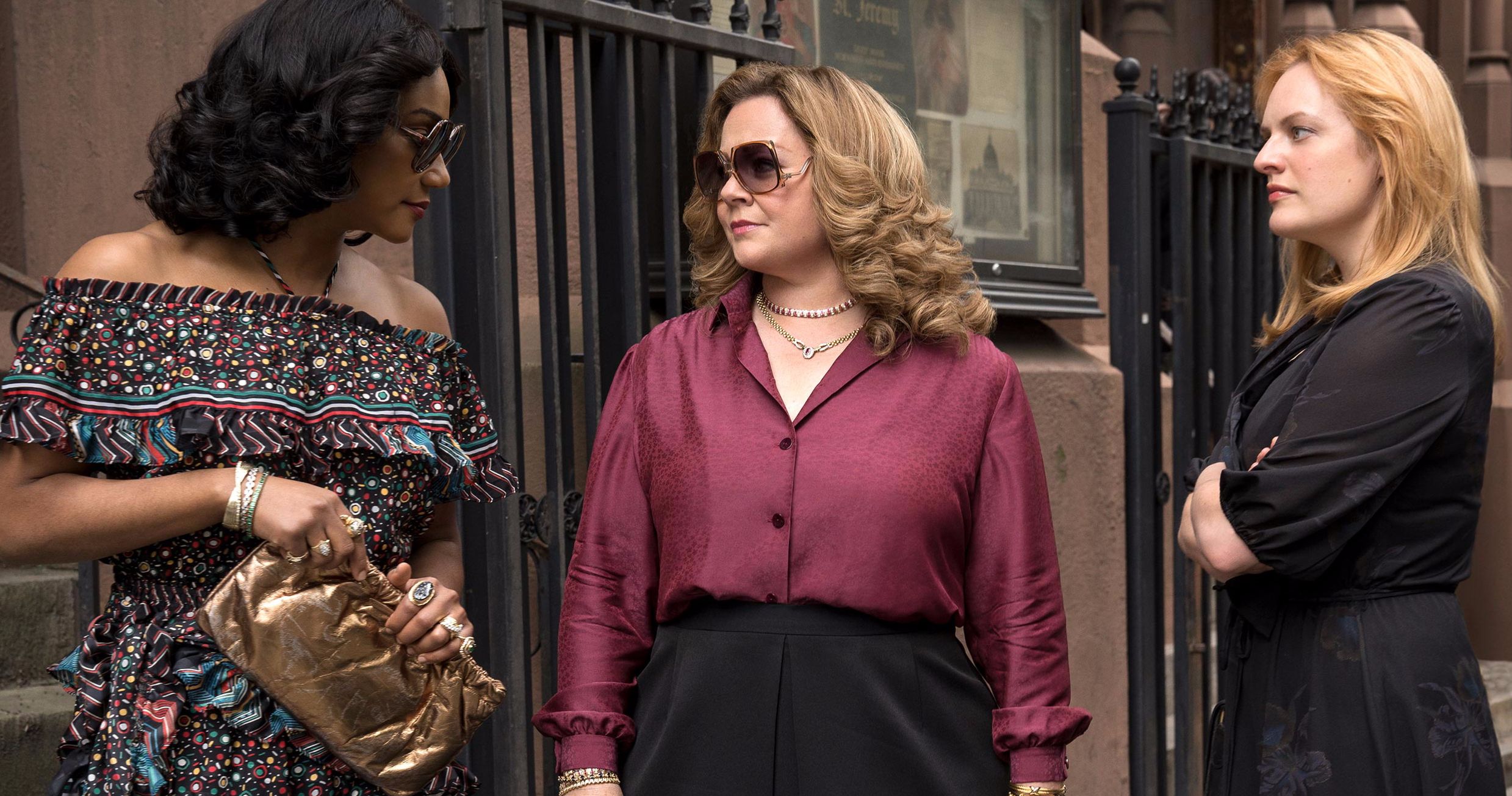The Kitchen is the film adaptation of the DC Vertigo graphic novel by Ollie Masters and Ming Doyle. The premise gives a female perspective to the traditional, machismo infused ethnic gangster flick. Unfortunately, we don't get Goodfellas with gals. A vacuous plot and utterly predictable execution wastes the formidable talents of a top tier cast. The film's female empowerment message becomes contrived with its megaphone delivery. The Kitchen follows the same gangsterism 101 recipe audiences have seen countless times. Having women as the crime bosses is refreshing, but a gender swap alone does not make a good movie.
The film takes place in New York City's Hell's Kitchen during the late seventies. The Irish mob runs the unions, protection, and loansharking rackets. An FBI agent (Common) has three local heavies under surveillance. Jimmy (Brian d'Arcy James) is a good family man, but an inept criminal. Rob (Jeremy Walsh) is a violent thug who beats and terrorizes his wife. Kevin (James Badge Dale) is the ringleader and son of the mob's neighborhood matriarch (Margo Martindale). The trio are easily arrested for their strong-arm tactics.
Melissa McCarthy stars as Kathy, Jimmy's wife and a mother of two. She's best friends with Claire (Elizabeth Moss) and Ruby (Tiffany Haddish), the wives of Rob and Kevin. The women sink into poverty and desperation after their husbands are sentenced. The mob gives them a scant allowance to survive. They are ridiculed and rebuked when Kathy begs for more money. Their treatment infuriates her. Claire has been a punching bag her whole life. She embraces her freedom. Ruby, the only black woman amongst the Irish, is through being racially subjugated. The women decide to take over their husbands' business. They enlist a cold-blooded killer (Domhnall Gleeson) to back them up.
The Kitchen is the feature directorial debut from Straight Outta Compton writer Andrea Berloff. She also adapted the screenplay from the graphic novel. Berloff pours it on thick from the very beginning. The characters and setting are so overblown, they become like caricatures. Coupled with the formulaic gangster plot, The Kitchen feels more plodding than visceral. There are few surprises. The characters behave as expected; going through the motions with little depth. The Kitchen lacks nuance. Great crime dramas have detailed character exposition. The Kitchen is heavy-handed and obvious.
The empowerment theme should be celebrated. Subjugated women fight back and take control of their destinies against oppressive men. The recourse strains credulity by going overboard. Elisabeth Moss as Claire is the focus for physical and sexual assault. You root for her when she turns the tables and starts fighting back. The problem is she turns into a killing machine with a taste for blood like an unhinged serial killer. Her subplot is another example of the film's leaden tact.
The Kitchen is a hard-R gangster flick. It's loaded with violence, swearing, and adult themes. Head shots, chopped up bodies, a few scenes were much more graphic than expected. In that sense, The Kitchen works better as a pulp action film with a girl power message. A re-edit in that direction would entertain and trim the shortcomings. The Kitchen is produced by New Line Cinema and DC Films with distribution by Warner Bros.

